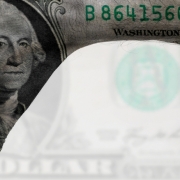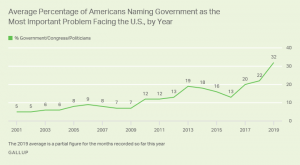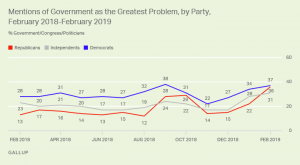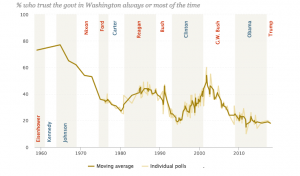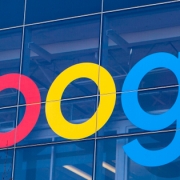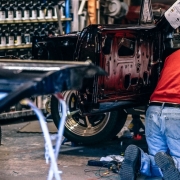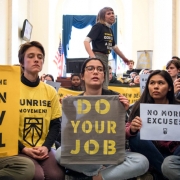Can Capitalism Survive Democracy? Yes, When It Decentralizes And Leaves Government Isolated.
Michael Munger is pro-capitalism. You can check his academic credentials and his many appearances on EconTalk. He recently co-authored an article in the Independent Review under the title The Road To Crony Capitalism (echoing Hayek’s title, The Road To Serfdom, which we have serialized here). Briefly, the proposition is that capitalism in a Democracy has an inevitable tendency towards crony capitalism (which is not capitalism at all) and that this path will get us to a state-run economy quite quickly. It’s a pessimistic and fatalistic argument. We disagree about the inevitability of the tendency, but let’s first summarize Munger’s case.
Capitalism is a system of private property rights.
First, we start with a definition of capitalism. It’s an economic system of individual rights including private property rights, where goods, both producer goods and consumer goods, are owned privately. Individual private citizens can trade their privately owned goods, including their labor and ideas, with each other. They can also save some of what they produce, invest their savings in technology and service improvements, and thereby create better future conditions for each other. By means of these voluntarily arrangements, a capitalist economy results in betterment for all. While the self-interest of any one individual lies in his or her own betterment, the economic mechanism of mutual voluntary exchange results in betterment for all.
In a democracy, capitalism must accommodate the State and live by its rules.
Because we live in a democracy, we must accommodate the existence of another actor: the State or, as we more usually refer to it, the Government. The Government has a different motivation than the betterment of individuals. It aims to increase and expand its own power. Certainly, there are individual bureaucrats and elected politicians who will also experience – and seek – personal betterment, however they may define it, but the road lies through the power of the State.
The State wants to organize special interest groups into a coalition of permanent support.
The mechanism the State uses in a democracy to maintain its support is to create a number of special group interests which it can assemble into a coalition to keep the State in power. We are not so much discussing the electoral coalitions of Democrats and Republicans here, although those are highly relevant, but the more continuous and permanent coalition that keeps the State in power over the long term, and keeps State revenues and employment growing. Why do we have a powerful government? Because there is a majority coalition of special interests that want it.
Business interests are one type of special interest group that is particularly useful….
Among the many special interest groups that the State can cultivate for its support are businesses and business owners who seek a corrupt deal with the government to protect or reinforce their market position. Under what circumstances would businesses seek this special protection? In economic language, it would be at the point where, when thinking about the efficient allocation of resources, a business realizes that a dollar spent on lobbying government for special treatment is a better allocation than the same dollar spent on investment, because the benefits dispensed by government improve the accounting profits of the business.
…..so the State brings them into being via rigged regulatory incentives.
Government bureaucrats and elected politicians actively create the scenarios in which businesses can generate better accounting profits through lobbying and securing protection and special treatment than they can through honest and responsible capitalism. For example, they will institute a tax to damage a business’s profitability. Then they will offer a loophole in that tax for a company that is prepared to trade for it, perhaps by paying a fee, or paying for a politician’s election, or contributing to the coffers of a specific political party, or performing services for the government, or providing knowledge to the government.
Protections from government can include tariffs on the goods and services of foreign competitors, or the establishment of barriers to entry into a company’s industry (such as minimum capital requirements or special licenses). Or the government can establish a regulatory threshold that is so difficult to comply with that new entrants or under-funded competitors will not be able to afford the cost. The “crony” company is thereby protected by its ally, the government.
Now we no longer have capitalism. We have irreversible crony capitalism.
This “crony” capitalism is no longer capitalism. It no longer fits the definition we set out. Can the tendency to crony capitalism be stopped? Not if there exists a State that is driven by its need for expanding power to intervene with business to divert resources and effort towards keeping government strong and growing. Can we expect our business executives to be morally superior and refuse to crony up to government? Not realistically. Once one of their competitors secures an advantaged position by accepting the government’s incentives to move towards collaboration with the State, a firm would have to commit commercial suicide to refuse to comply with the new conditions for competing in the industry, and they won’t risk the loss of Wall Street and global investor assent.
Don’t de-regulate. Decentralize.
What’s the solution? There are two potential answers, but only one is practical. The impractical answer is to campaign to limit government intervention in business matters. No more tax loopholes, no more industry regulation that favors large incumbent corporations over innovative new entrants, no more legislation that favors cartels and anti-competitive behavior. Good luck with that. None of the legislative and regulatory ketchup is going to go back into the bottle.
The only practical answer is a revivified entrepreneurial capitalism. Small companies, driven by innovation, serving segmented customer needs with specialized services, funded by small investors and private capital. A highly decentralized economy. An end to the giant corporations who sidle up to government and collaborate so closely that it’s hard to say where one ends and the other begins. If it weren’t for the regulatory apparatus of the State economy, giant corporations would not exist. They lack the agility to move as fast as the dynamic entrepreneurs of the decentralized economy, and can’t innovate as quickly, so they would quickly fall behind and realize that they must break into smaller units to achieve the same dynamism.
The decentralized economy is on its way. Artificial intelligence and interconnected global trading platforms that can assemble – and just as quickly disassemble and reassemble – supply chains on the fly will make the giant crony capitalist corporations an artifact of history, and not of the future.

